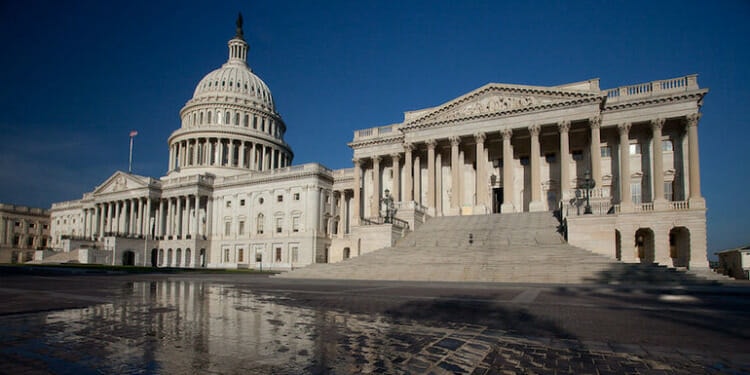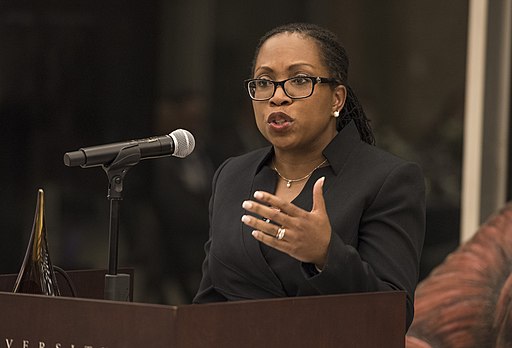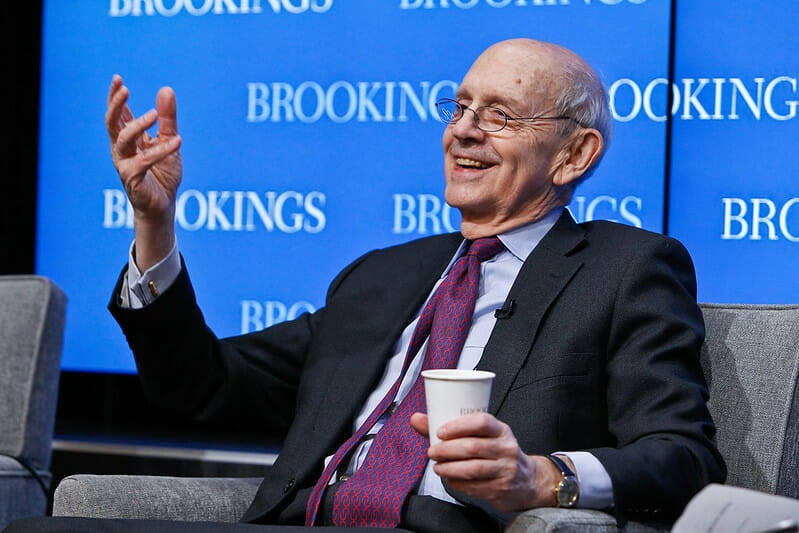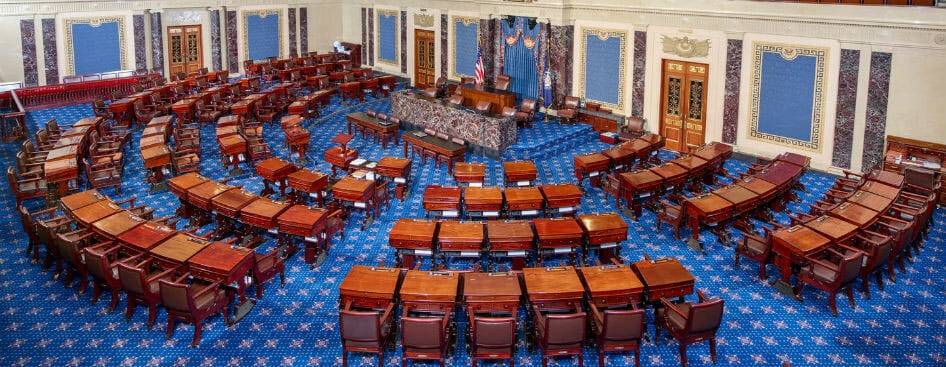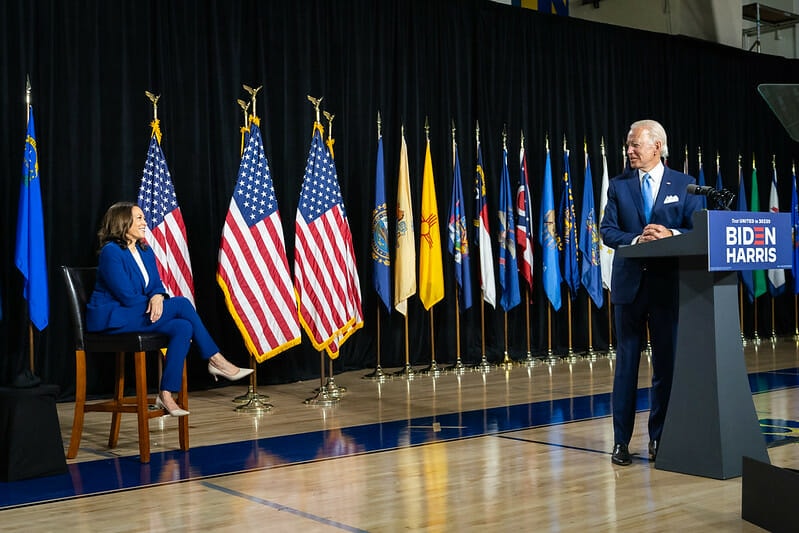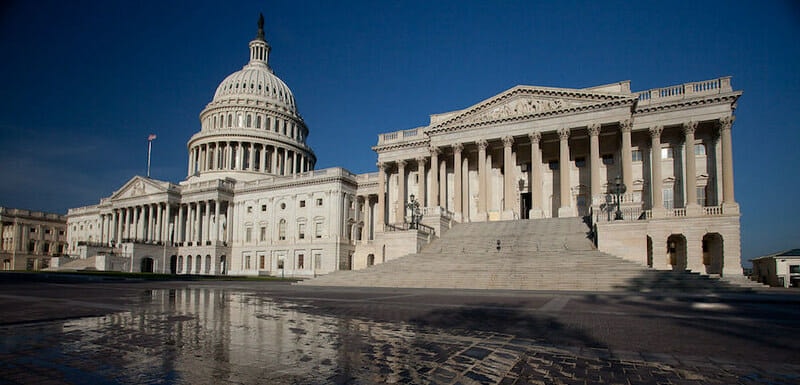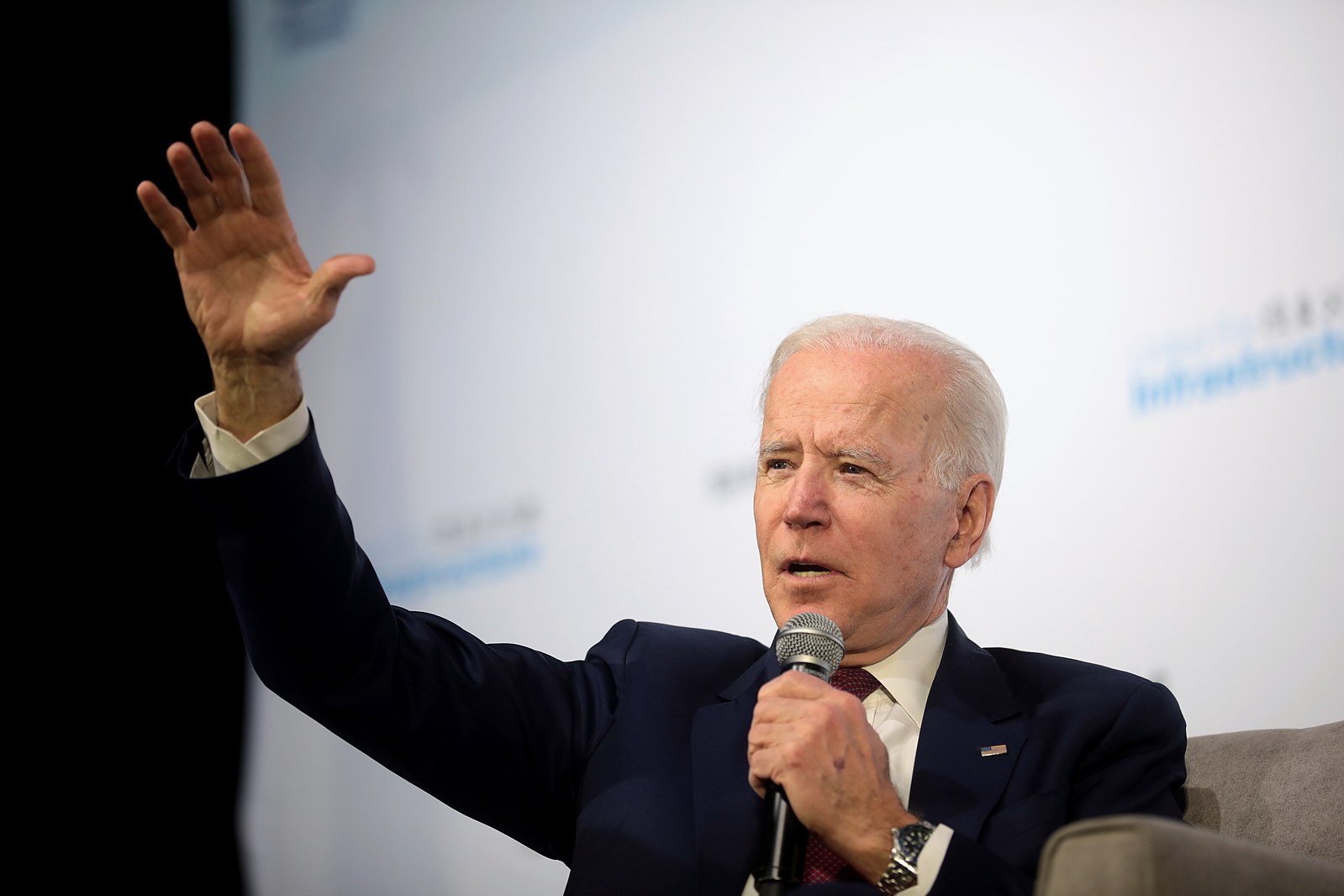American politics is currently in something of a ‘limbo’, floating somewhere in between a year into a new presidency, but with just under 300 days until midterm elections get underway.
Thus, what the dominant issues will be in this decisive year remains to be seen, and there is certainly a lot left to play out. From abortion access and the potential overturning of Roe vs Wade in the summer, to the enactment of President Biden’s landmark, bipartisan infrastructure package and the bleak outlook for its ‘Build Back Better’ sister bill, there are a plethora of issues that could be in the minds of Americans across the country as they take to the polls in November
Yet, perhaps underpinning many of these concerns, a different, somehow-controversial theme has emerged – voting rights.
The new year has begun with a bombardment of warnings from the Democratic Party that election integrity is at risk, and democracy itself could be on the ballot. These anxieties have taken such a hold of their messaging in recent times that President Biden even claimed in a news conference last week that the midterms could “easily” be illegitimate.
Biden says that future elections “easily could be illegitimate.”
“I’m not saying it’s going to be legit. The increase in the prospect of it being illegitimate is in direct proportion to us not being able to get these reforms passed.” pic.twitter.com/DF0iOXX2jl
— Townhall.com (@townhallcom) January 19, 2022
The President clarified that this illegitimacy would be “in direct proportion to us not getting these reforms passed” – reforms that, as we now know, have been rejected.
On the evening of January 19, sweeping voting rights packages were voted down by the Senate. In a familiar repeat of the frustrating ‘Build Back Better’ negotiations of the last few months, liberal ambitions were thwarted again, in part, by the protracted Manchin/ Sinema double act – the two moderate Democrats who have represented the biggest hurdle to Biden’s agenda in the evenly split Senate.
Without support from a single Republican Senator, the only chance that the legislation, a combination of the John Lewis Voting Rights Advancement Act and the Freedom to Vote Act, had to pass was to circumvent the filibuster (the Senate’s 60-vote threshold).
After predictably failing to initially reach the 60 votes needed to move forward on the bills, a subsequent vote to exempt the packages from the filibuster’s limit fell short again in a 52-48 vote, with Manchin and Sinema’s opposition to changing the Senate rules concluding a frustrating evening for the Democratic caucus.
Related Articles: A Year On From January 6, 2021 | How Abortion Could Shape the US Midterms | Biden’s Make-Or-Break Moment | Democrats Propose Bill Banning Targeted Advertising
However, whilst certainly a body blow to the fight for voting rights reform, last week’s Senate vote does not necessarily signify the end of the road.
Despite dealing yet another setback to their own party’s ambitions in this November’s midterms and fueling perceptions that the Democrats are not exactly united in their Washington majorities, Manchin and Sinema are among a cross-party group of Senators reportedly working towards a curious compromise that could yet see progress on one of the most hotly debated issues in Washington right now.
A bipartisan, scaled-back version of the rejected voting rights packages may be in the works, driven by anxieties over potential 2020 election deja vu. The faction is headed by Republican Senator Susan Collins, who told reporters on Thursday, the day after the voting rights legislation failed to pass, that six Democratic Senators had joined the effort so far.
The potential new voting legislation may look to reform the 1887 Electoral Count Act, an outmoded law that currently affords Congress-members the opportunity to oppose official election results. Even Senate Minority Leader Mitch McConnell, the GOP chief who has in the past admitted he is “100 percent focused” on stopping Biden’s agenda, labelled the law “clearly flawed.”
Patching up this loophole could, hopefully, kneecap the foundations that enabled former-President Trump’s post-2020 election fraud campaign and end hopes of a repeated January 6 Capitol riot before it can begin.
The Electoral Count Act is only relevant to presidential elections, making this reform somewhat moot to this year’s midterms. Nevertheless, the bipartisan group could also look at providing additional funding to improve voting systems across the nation, as well as afford enhanced protection against threats or abuse towards election workers – an action that Senator Manchin has supported making a federal crime.
Thus, despite opposition to the failed Democrat bills, it appears that the contrarian nature of the modern Republican party has not translated to an exclusive ignorance to the dangers facing modern US elections.
This was evident in the rhetoric from Senator Collins as she spoke to reporters on January 20, emphasising that the updated version will intend to be “an election reform bill that is truly bipartisan, that would address many of the problems that arose on Jan. 6 and that would help restore confidence in our elections.”
For months, Democratic leaders have been pushing to end the filibuster, closely tying it to the issue of voting rights. However, following the rejection of the voting rights packages last week, it looks as though the partisan deadlock in the Senate is here to stay until November at the earliest.
Martin Luther King III to Arizona’s Kyrsten Sinema and West Virginia’s Joe Manchin: “If you can deliver an infrastructure bill for bridges, you can deliver voting rights for Americans. If you do not, there is no bridge in this nation that can hold the weight of that failure.” pic.twitter.com/LtIT3xCF0L
— CBS News (@CBSNews) January 17, 2022
In a statement following the Senate vote, Vice-President Kamala Harris insisted that the White House “will continue to fight to pass federal legislation—and to change Senate rules—to secure the right to vote.”
“We will not stop fighting against the anti-voter legislation that Republican legislatures continue to push at the state level—and to champion and support state and local elected officials who work to enact pro-voter legislation,” added Harris.
Throughout last year, at least 19 states passed 34 laws that make it harder for Americans to vote, according to the Brennan Center for Justice. These measures include restrictions on early voting and mail-in ballots, elements that were at the heart of Trump’s 2020 election fraud claims, as well as the promotion of harmful voter-roll purges.
Many of these issues were to be addressed in the rebuffed legislation on Wednesday night, which included a guarantee of 15 days of early voting, online voter registration, and limitations on gerrymandering – the practice of distorting district lines to pinpoint certain electoral demographics.
“In total, more than 440 bills with voting restrictions have been introduced in 49 states—
and Senator McConnell can’t see one example of voter suppression.”
—@SenatorDurbin pic.twitter.com/YNSwSVGDlc
— Senate Democrats (@SenateDems) January 19, 2022
Wielding his deal-making, cross-party negotiation experience was a key selling point of President Biden’s 2020 campaign, and the potential of these bipartisan voting rights efforts may be the best that those pushing for all-out reforms can hope for right now. Even if they can’t deliver historic, ground-breaking legislation, endeavours like these should still be applauded in Washington’s divisive landscape.
With this November’s midterms destined to be among the most widely anticipated in recent memory, the issue of voting access could become a common talking point from a Democratic Party keen to increase voter turnout.
However, despite repeated and clear evidence that Donald Trump’s 2020 election fraud claims do not hold any credence, insistence from the Democrats that these coming midterms (that they look set to fare poorly in) may be rife with electoral contention could be dismissed by a public crying out for simple, fair elections. If the last national election is anything to go by, the midterms may become drowned out by controversy, and a spotlight on factious voter laws may end up just adding a log to the fire.
Editor’s Note: The opinions expressed here by Impakter.com columnists are their own, not those of Impakter.com. — In the Featured Photo: Senate Building, Washington, DC. Featured Photo Credit: Sebastian Vital, Flickr


